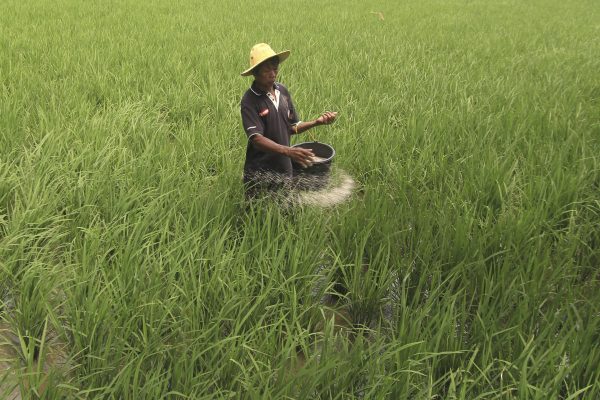The land taxes will use three schemes. First, under a scheme of progressive tax rates on land, land owners will pay higher tax for their second land sites, higher again tax on the third and so on. Second, profits on sales of land will subject to a capital gains tax — the positive difference between the sale price and the acquisition price will be taxable. Third, non-productive land — land which is idle or without a clear development plan — will be subject to an idle land tax. Theoretically, the new policy will lower land prices and eventually will provide a better access to housing.
Indonesia is experiencing an historic transformation from a rural to an urban economy. Its cities are growing at 4.1 per cent per year — faster than any others in Asia — and 68 per cent of the country’s population are projected to live in cities by 2025.
As in other developing countries, the primary motivation to migrate to urban areas is to find a better job, but many such migrants are poor and less educated than urban populations. They struggle to find affordable housing, not to mention the need for other supporting urban facilities.
Will the novel land tax successfully suppress speculative land buying — thereby helping housing affordability — and increase tax revenue? Jonathan Skinner studied the effectiveness of land taxes in several developing countries. He argues that land taxes are not particularly effective in discouraging speculation in idle land, since the land tax is not a factor that determines the rate of change in land prices.
This argument is valid only when the land tax is implemented as a one-off payment. The idle land tax (the third scheme of the proposed Indonesian land taxes) should be imposed recurrently, most likely annually, rather than once only to position the land tax as a variable that controls changes in land prices.
If the government decides to implement an annual tax on idle land, then appropriately defining ‘idle’ or ‘non-productive land’ becomes vital: wrong definitions of the term will hurt non-speculative land owners. Sofyan Djalil, Minister of Agrarian Affairs and Spatial Planning, has emphasised that land with a clear development purpose will be exempted from the tax. But land owners may argue that they do have clear development plan — as part of their business strategies, they wait for the right moment before executing the plans. They certainly will refute that their land is idle.
Skinner also points out that other issues, such as problematic land valuation and chaotic land ownership administration, prevent countries from collecting more revenue out of land taxes. These administrative problems are likely to happen in Indonesia as well. Presently, under Indonesian tax law, income tax of 2.5 per cent applies on the gross selling price of land, but it is not a secret that Indonesian land owners can easily manipulate the prices of land sold in order to avoid the tax.
People could also outsmart progressive tax rates by transferring land ownership among family members or business associates. The fact that the Directorate General of Taxation does not have access to the land ownership database administered by the National Land Agency exacerbates this problem.
The government is drafting the idle land tax regulation to be implemented soon this year. The time remaining should be utilised to produce a comprehensive yet easily executable regulation. An appropriate definition of idle land, a system to ensure that land owners report the actual sale price, and access for the Directorate General of Taxation to the land ownership database are among the factors required for successful regulation.
If the government manages to achieve this, the tax may contribute to state revenues to support the massive infrastructure development projects promoted by President Joko Widodo’s administration. It would be a pleasant surprise if the idle land tax suppresses speculative land buying to aid in Indonesia’s housing affordability.
Arnaldo Purba works for the Directorate General of Taxation in the Indonesian Ministry of Finance. He is a PhD candidate in the College of Business and Economics at the Australian National University. The views expressed are his own.

